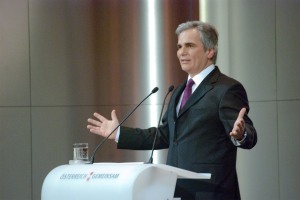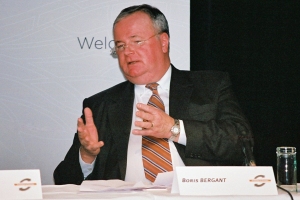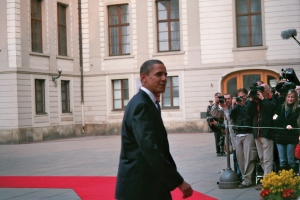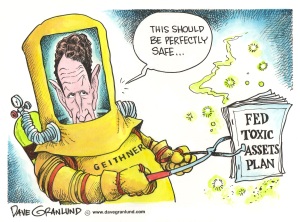A photo essay of a political show. Photographs: Matthias Wurz
Austria’s Social democratic Chancellor Werner Faymann felt the need to celebrate on Dec 2, 2009 at the imperial Hofburg. Österreich.Gemeinsam (Austria Together) was the title of Faymann’s speech, the occasion was the first anniversary of the current Austrian government, led by Faymann since December 2008 at the time of economic crisis. The message was simple: all is well at home. Faymann’s skill as public speaker was impressive, evidently inspired by U.S. President Barack Obama in its delivery. But Faymann’s speech – unlike those of the current U.S. President – had only one fault: Staging a political show that demonstrates the art of talking a lot but saying very little.
Chancellor Werner Faymann felt the need to celebrate on Dec 2, 2009 at the imperial Hofburg. Österreich.Gemeinsam (Austria Together) was the title of Faymann’s speech, the occasion was the first anniversary of the current Austrian government, led by Faymann since December 2008 at the time of economic crisis. The message was simple: all is well at home. Faymann’s skill as public speaker was impressive, evidently inspired by U.S. President Barack Obama in its delivery. But Faymann’s speech – unlike those of the current U.S. President – had only one fault: Staging a political show that demonstrates the art of talking a lot but saying very little.
All’s Well That Ends Well is one of William Shakespeare characteristic plays, first published in 1623; its title refers to a proverb whatever the troubles, as long as the outcome is a good one. It seems that the Austrian Social democrats have adapted the theme of Shakespeare’s comedy, signalling that the international economic and financial crises are well in hand. Business as usual, made in Austria.
Read the rest of this entry »

 Photos: Matthias Wurz
Photos: Matthias Wurz


